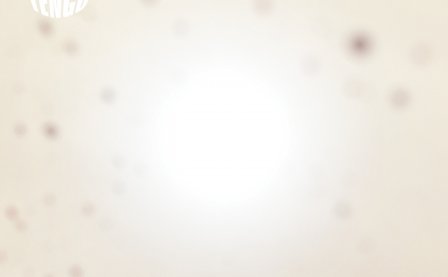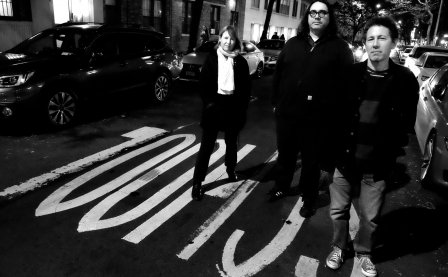The Pixies haven't released an album since 1991. Pavement have been defunct for nearly a decade. Guided by Voices called it quits roughly five years ago. My Bloody Valentine and Neutral Milk Hotel’s fame has come posthumously after relatively quick stints that also reach back over a decade. Until this summer, Superchunk hadn't released new material in nine years. It would therefore seem safe to surmise that the first incarnation of "indie rock," a style of music that gave melody and abstraction to 1980s punk and hardcore, has nearly passed us by (save the reliable, ubiquitous Sonic Youth). And yet here’s Yo La Tengo as embracing, alienating, and prolific as ever, with another strong new album, Popular Music.
Although it contains a good number of surprises, Popular Music ultimately finds a kinship with other Yo La Tengo releases, namely in the fully canonized I Can Hear the Heart Beating as One and, with its adroit ability to shift style and theme from song to song, in the near-universally lauded I Am Not Afraid of You and I Am Going to Beat Your Ass. It's not quite as immediately compelling as these albums, but Popular Music still triumphantly carries the band’s 25-year legacy. Ranging from pastoral, fragile pop songs to 15-minute noise jams with equal skill, it packs many delights for fans both casual and hardcore.
Popular Music lives up to its title from the start, as opener “Here to Fall” immediately evokes Curtis Mayfield with 1970s soul-era orchestration and an understated funk rhythm. The song rolls forth with a bubbling urgency, as Ira Kaplan sings, “There’ll be some happy endings/ There’ll be dreams that won’t come true.” The song forecasts the dense, unpredictable fabric that is to follow, like a Georgia Hubley-sung twee ballad, country-tinged jangle pop, psychedelic organ blasts, and quietly orchestrated lullabies that vaguely resemble those of good friends and occasional tour mates Lambchop. “And the Glitter is Gone,” which ends the album, is a more familiar, 15-plus-minute noise freak-out that might be Yo La’s most beautiful yet, as the song unspools melody lines from its own squealing din.
In spite of its unique styling and contemporary sonic assimilations, this album also bares a sense of nostalgia indicative of a veteran band. On “All Your Secrets,” the last ballad on the album, Ira Kaplan sings “If there’s things that I’m afraid to know/ I should have learned them long ago” and “As the days ahead become behind/ Plays the tape as we rewind.” It’s unavoidable not to conjure the album cover here – a well-worn, busted cassette tape – a mere specter of audio technology as well as an emblem for how music stakes roles in our lives. But what also defines Popular Music is what it lacks, which is the band’s near-patented Velvet Underground-styled drone pop and amp-fueled guitar rockers like I Can Hear the Heart’s “Sugarcube” and “Little Honda.” In fact “Nothing to Hide” is the only overt “rock” song on the album.
In a recent interview with The New York Times, Kaplan said, "I would say I don’t put a gigantic premium on originality. I don’t think there’s anything wrong with music reminding you of something else." Keeping in line with this sentiment, the intro for “If It’s True” mimics, note for note, the 1965 Four Tops’ hit “I Can’t Help Myself (Sugar Pie Honey Bunch).” Here they celebrate the sounds that surround us, the ones vital enough to be culled and stretched into something new. And in these notions, the unifying aspect of Popular Music’s songs -- and a defining characteristic of Yo La Tengo in general -- reveals itself: that often, the greatest works of creativity come from the most likely places.
1. Here to Fall
2. Avalon or Someone Very Similar
3. By Two's
4. Nothing to Hide
5. Periodically Double or Triple
6. If It's True
7. I'm On My Way
8. When It's Dark
9. All Your Secrets
10. More Stars Than There Are in Heaven
11. The Fireside
12. And the Glitter Is Gone
More about: Yo La Tengo




